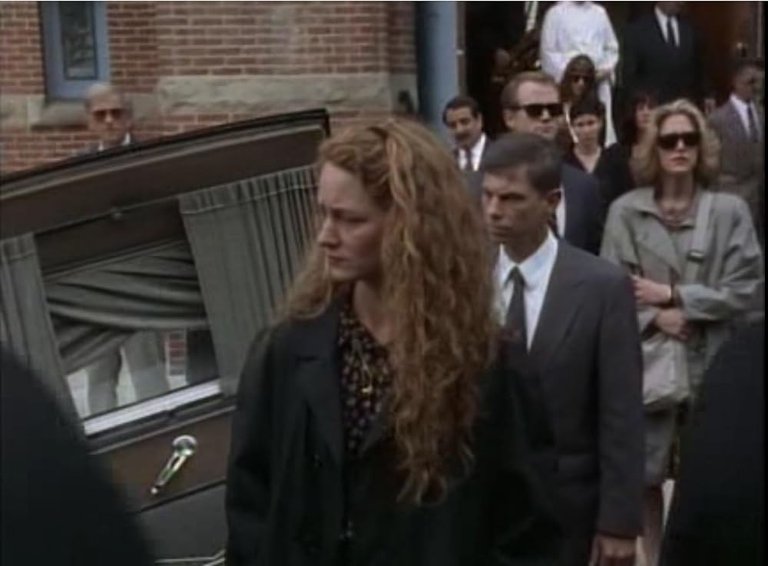Television Review: Crosetti (Homicide: Life on the Street, S3X06, 1994)

Crosetti (S03E06)
Airdate: 2 December 1994
Written by: James Yoshimura
Directed by: Whitney Ransick
Running Time: 49 minutes
The sixth episode of Season 3 of Homicide: Life on the Street, titled Crosetti, serves as a poignant illustration of both the strengths and weaknesses inherent in the series. On one hand, it showcases the show’s remarkable ability to deal with complex emotional narratives and character development; on the other, it highlights significant issues stemming from its airing schedule, which ultimately undermined the viewing experience for many fans.
One of the most significant drawbacks of "Crosetti" is how NBC managed its original broadcast. The network frequently aired episodes out of their intended order, leading to various continuity issues that perplexed viewers. To address these problems, NBC resorted to adding simple opening credits that indicated the timeline of events, suggesting that certain plots took place some time in the past. However, this approach often felt inadequate and did little to resolve the confusion.
In Crosetti, this disarray became particularly problematic as it spoiled crucial plot points for viewers who had followed previous episodes. This episode revolves around the tragic demise of Detective Steve Crosetti, a character whose fate was predetermined by NBC's insistence on introducing a new cast member, Isabella Hoffman, as Detective Megan Russert. Producer Tom Fontana was compelled to write Crosetti out of the show to accommodate this change. Although Fontana initially promised to find a way to reintroduce Crosetti later in the season, actor Jon Polito's public criticism of Fontana regarding these cast changes created a rift between them that took years to mend. Ultimately, this behind-the-scenes turmoil sealed the fate of Crosetti’s character before viewers could experience his story arc fully.
The episode itself is structured around a single case, beginning with the discovery of a car submerged in Baltimore's Inner Harbor and the body inside it. Early on, Lewis expresses his concern over not being able to reach Crosetti after his vacation. When Bolander and Munch are called to investigate and discover that the victim is Crosetti himself, the news sends shockwaves through the Homicide Unit. Lewis struggles to accept that his partner and best friend may have taken his own life, desperately urging Bolander to consider alternative explanations. His emotional turmoil leads him to interfere with Bolander's investigation by speaking with potential witnesses. It is only when preliminary autopsy results indicate the presence of tranquilizers and alcohol that Lewis reluctantly confronts the painful truth about Crosetti's suicide.
Another layer of complexity surrounding Crosetti’s death is related to the Baltimore Police Department's policies regarding funerals for officers who die by suicide. By taking his own life, Crosetti forfeited his right to an honour guard at his funeral, a rule strictly adhered to by the department despite Lieutenant Giardello's appeals to higher authorities. Furthermore, Pembleton's refusal to attend Crosetti's memorial service due to his own struggles with Catholicism adds another dimension of conflict within the narrative. Nonetheless, Crosetti receives a dignified farewell through a funeral procession that culminates in one of the most memorable moments in Homicide history.
"Crosetti" stands out as one of the best-written episodes of Homicide: Life on the Street, adeptly exploring how such a shocking loss impacts each member of the Homicide Unit differently. Lewis is given significant screen time as he grapples with grief, and Clark Johnson delivers an outstanding performance that resonates deeply with viewers. The supporting cast also shines; Ned Beatty’s portrayal of Bolander captures not only his professional responsibilities but also his personal conflicts stemming from Lewis’s emotional state and their shared experiences.
The episode cleverly intersperses moments of levity amid its heavy themes, notably through Munch’s brother Bernard "Bernie" Munch (played by Joey Perillo). As an undertaker who engages in witty banter with Munch, Bernie provides comic relief.
Moreover, Crosetti effectively mitigates feelings of sorrow through nods to continuity from previous seasons. The return of Chris Thormann, Crosetti’s close friend and former police officer who was blinded in Season 1, serves as a reminder that life continues despite profound loss. Thormann and his wife Eva are shown embracing new beginnings with their baby, illustrating resilience in the face of adversity.
While Crosetti exemplifies both the brilliance and flaws of Homicide: Life on the Street, it remains an essential episode within the series' canon.
RATING: 8/10 (+++)
Blog in Croatian https://draxblog.com
Blog in English https://draxreview.wordpress.com/
InLeo blog https://inleo.io/@drax.leo
Hiveonboard: https://hiveonboard.com?ref=drax
Rising Star game: https://www.risingstargame.com?referrer=drax
1Inch: https://1inch.exchange/#/r/0x83823d8CCB74F828148258BB4457642124b1328e
BTC donations: 1EWxiMiP6iiG9rger3NuUSd6HByaxQWafG
ETH donations: 0xB305F144323b99e6f8b1d66f5D7DE78B498C32A7
BCH donations: qpvxw0jax79lhmvlgcldkzpqanf03r9cjv8y6gtmk9